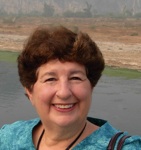 Nick Matteucci was in third grade when his teacher reported that he was slow learning to read, and not writing well. The teacher suggested he might have an attention deficit disorder, but because his IQ was high, and he was not yet behind grade level, the school was not ready to test him.
Nick Matteucci was in third grade when his teacher reported that he was slow learning to read, and not writing well. The teacher suggested he might have an attention deficit disorder, but because his IQ was high, and he was not yet behind grade level, the school was not ready to test him.
His mother Sandra, a faculty member at Washington University’s School of Engineering, didn’t think that attention deficit diagnosis fit Nicky. He could play the same game for hours, and he could answer any question about a story read aloud to him. In fact, after a particularly bad social studies quiz, she persuaded the teacher to read the questions to him—and he showed dramatic improvement.
So Sandra went to the web, and found the home page of the Center for Vision and Learning in Creve Coeur. On a hunch, she made an appointment for testing. Upon examination Nicky’s vision was 20/20 and his eyes were healthy. He was able to focus correctly for a time, but when Dr. Gail Doell, a developmental optometrist, and her therapists observed his eye movements, they found that his eye moved well for a short time, and then stopped scanning correctly. His eyes were experiencing extreme fatigue.
The good news was that Nicky’s problem was amenable to vision therapy, according to Doell. Exercises could strength his eyes to let them move quickly and accurately without fatigue.
Read the entire article (100KB PDF).
This article was originally published in the St. Louis Beacon.
